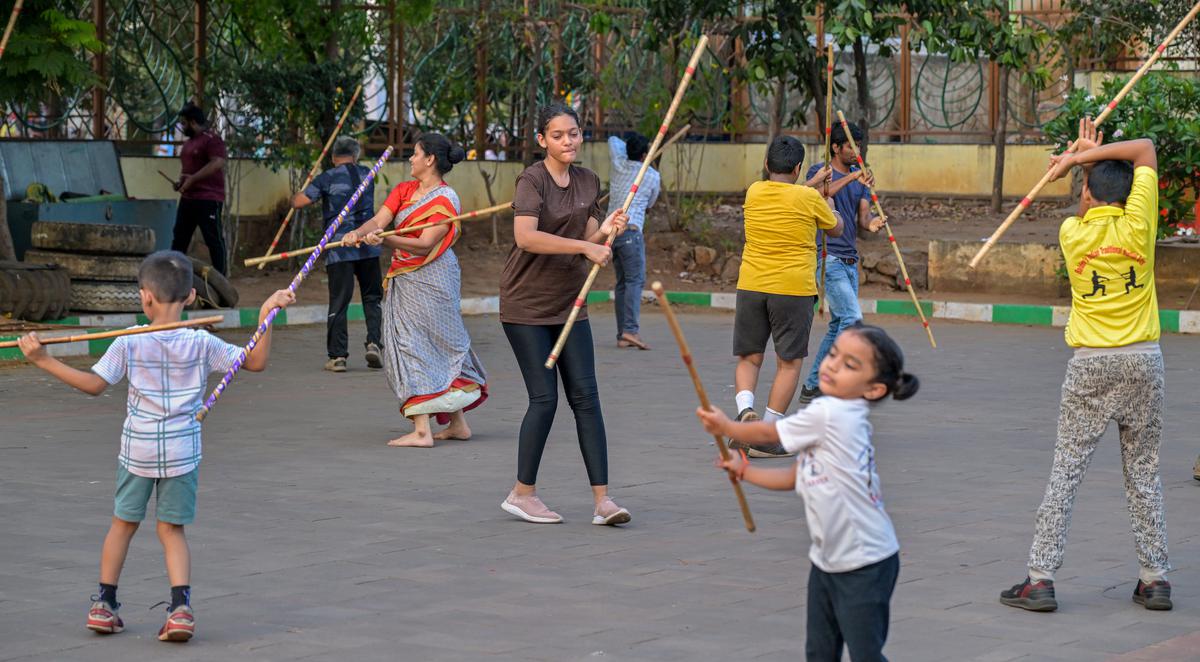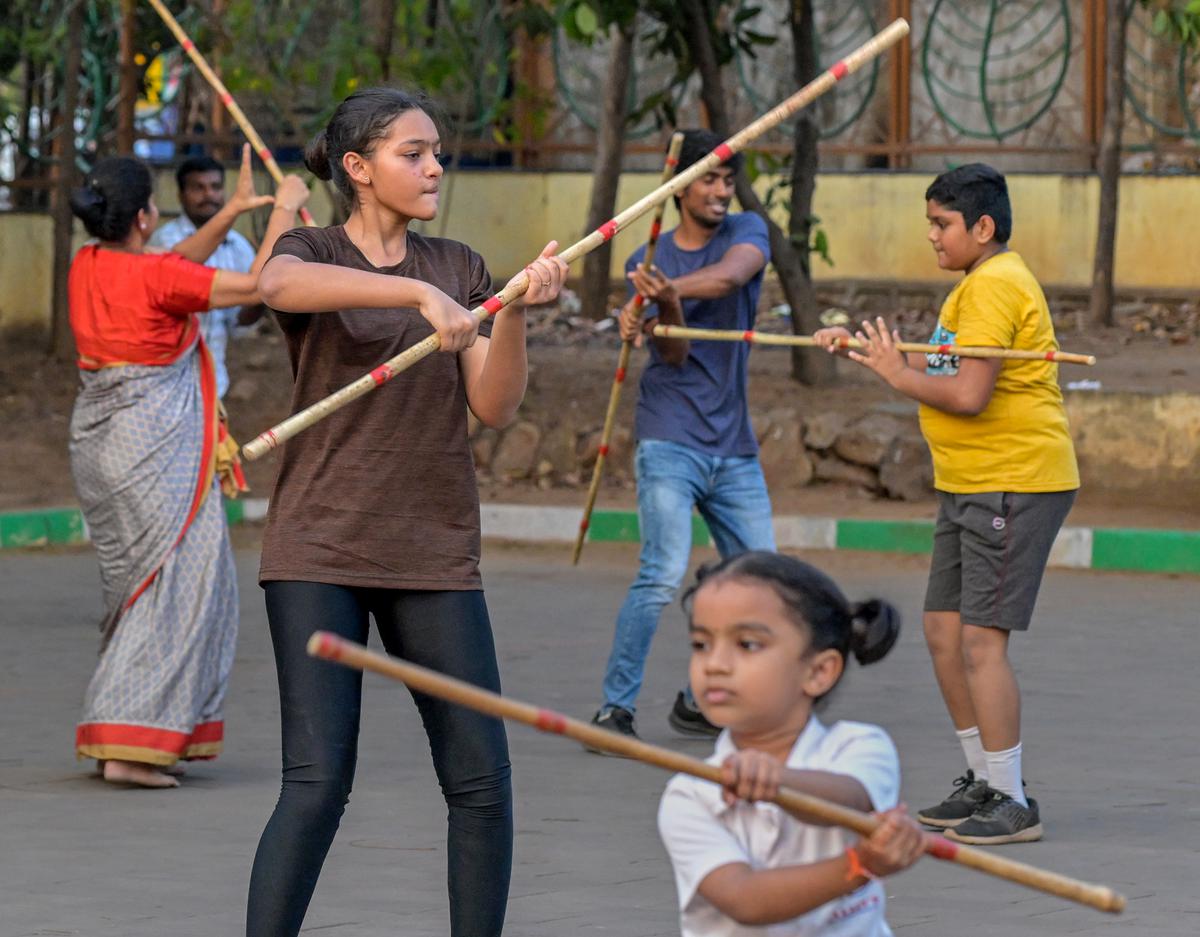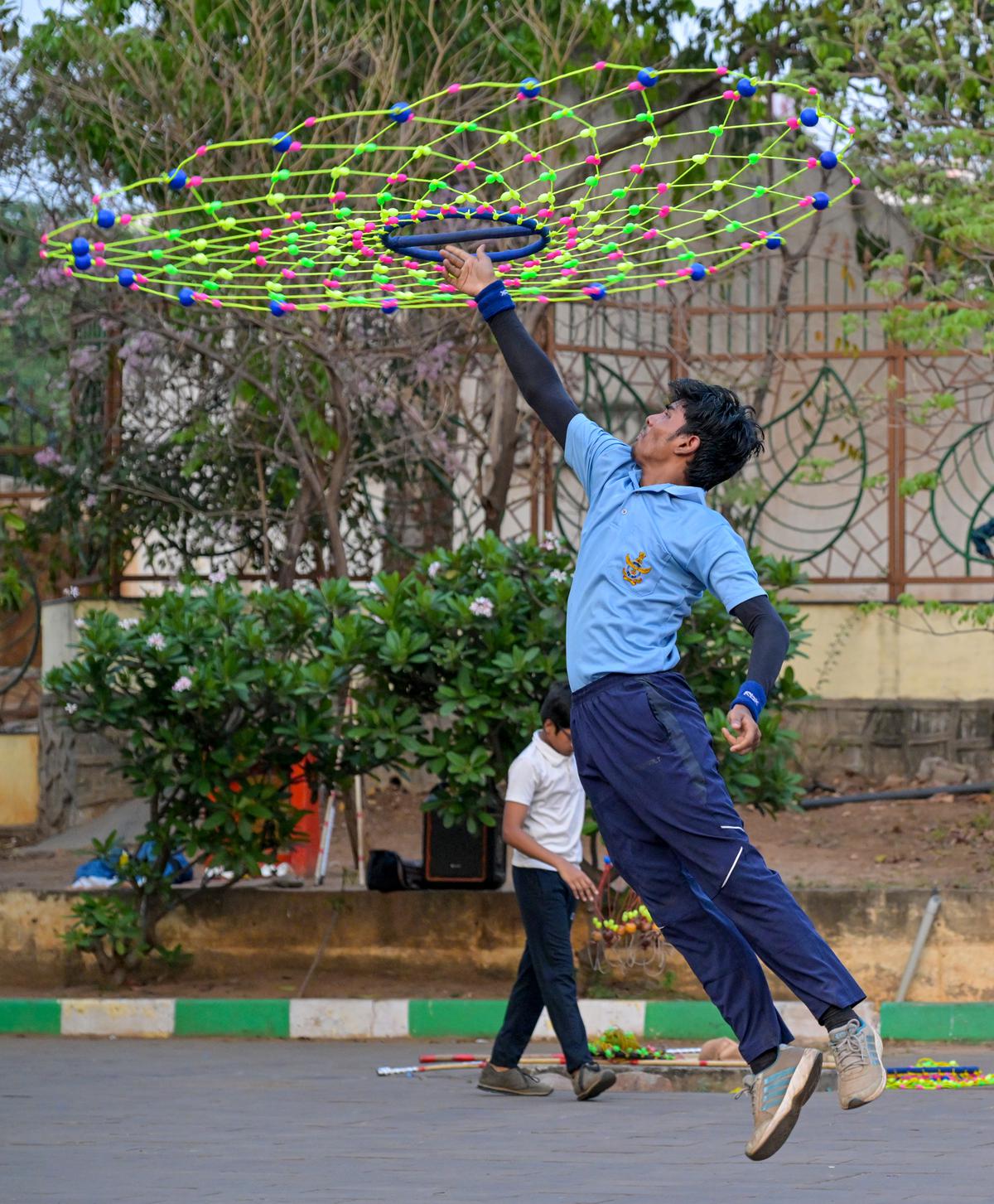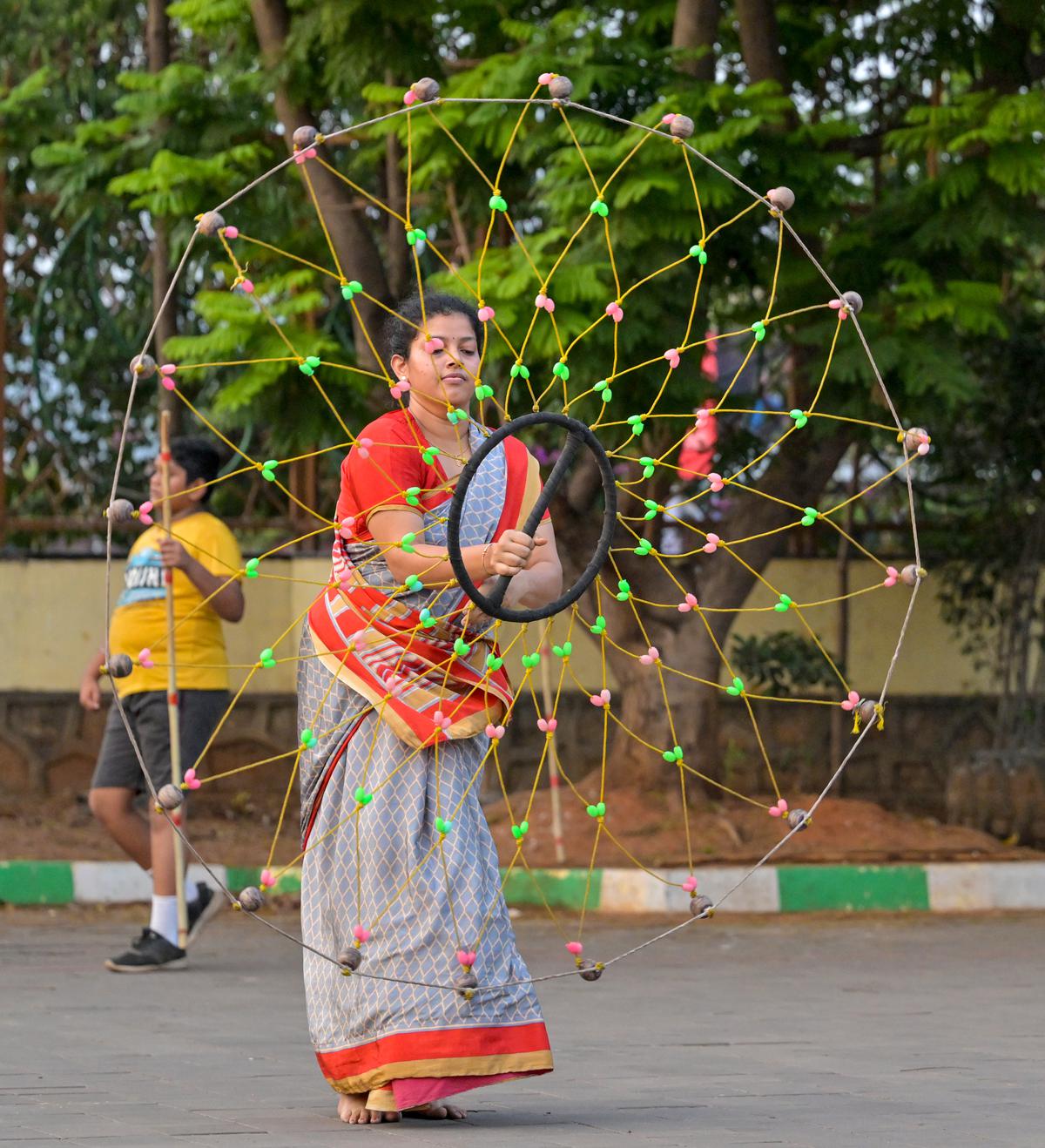
Children practicing karra Samu, a traditional martial arts sport of Andhra Pradesh, at VMRDA Central Park in Visakhapatnam.
| Photo Credit: KR Deepak
A sudden burst of energy fills the air one evening at VMRDA Central Park. With sticks in hand, a team consisting of people of a mixed age group, launches into action. Eyes locked in concentration, their hands move with precision, executing intricate strikes and blocks with effortless grace. The movements flow seamlessly from one technique to another, showcasing the beauty of the martial art form of karrasamu (stick fencing).
This traditional martial art form of Andhra Pradesh has seen a revival in Visakhapatnam in the recent years, thanks to the efforts of coach BA Lakshman Dev and his institute Baldev’s Indian Traditional Martial Arts. The institute has more than 50 people aged five to 60 years who are presently undergoing training in karrasamu. Every morning from 6am onwards, students gather at Central Park, perfecting the fluidity of their movements with sweeping kicks, swift punches and intricate footwork.

People practicing karrasamu, a traditional martial arts sport of Andhra Pradesh, at VMRDA Central Park in Visakhapatnam.
| Photo Credit:
KR Deepak
Over the past 15 years, Lakshman has trained hundreds of children and youth in Visakhapatnam and its neighbouring districts in this unique form of combat that is a blend of technique, discipline and cultural heritage. Many of his students have made a mark in the nationals, taking the popularity of the sport a notch higher in the coastal city.
A native of Srikakulam, Lakshman is a third generation karrasamu practitioner who learnt the art from his father and grandfather. “When I came to Visakhapatnam to start my institute, there were hardly a handful of people who came to learn the sport. Its popularity has increased over the years. People are realising the importance of traditional combat sport in enhancing flexibility, focus and overall fitness. The beauty of the sport is one can start training at any age,” says Lakshman.
He believes that introducing these traditional sports in schools can go a long way in helping preserve the cultural identity of the region and inspire the young generation to stay connected to their roots.
Origin and history
Karrasamu dates back to several centuries in Andhra Pradesh. This martial art evolved as a means of self-defence to prevent thefts and robbery, common in villages in the past and over the years was passed down through generations. The name ‘karra’ translates to stick and ‘samu’ refers to fighting or combat.

People practicing karra Samu, a traditional martial arts sport of Andhra Pradesh, at VMRDA Central Park in Visakhapatnam.
| Photo Credit:
KR Deepak
Karrasamu practitioners say that the martial art is not just a form of self defense; it is a way of life. “The sport also helps them one remain alert and aware of their surroundings,” says Lakshman and adds that this is one of the reasons the sport has been steadily drawing girls. “It teaches discipline, concentration and self-control. I also feel empowered in many ways,” says 27-year-old P Sudha, a national silver medalist in karrasamu. Sudha, who has been undergoing training at the Baldev’s Indian Traditional Martial Arts, says her journey in the martial art has been a life changing experience. “I feel a lot more confident in my life and my flexibility and energy has gone up considerably. The journey has been hugely empowering for me,” says Sudha.

People practicing the traditional martial arts of Gatka, which has its roots in Punjab, at a training centre VMRDA Central Park, Visakhapatnam.
| Photo Credit:
KR Deepak
For B Mahalakshmi, a student of grade 10, karrasamu has improved her concentration levels and arm strength. At 58, S Narayana started training recently when he was looking for ways to pass time after dropping his son to his college and classes in the city. It didn’t take him long to get hooked on to the visually captivating and energetic martial art form during one of his casual walks at the Central Park. “I am a regular here now; it is a meditative experience which I look forward to every day,” he adds.

A girl practicing the traditional martial arts of Gatka, which has its roots in Punjab, at a training centre VMRDA Central Park, Visakhapatnam.
| Photo Credit:
KR Deepak
Practitioners undergo rigorous training to master these techniques, which include a warm-up session of running around a section of the park, followed by an array of kicks, blocks and grappling maneuvers. Lakshman has also introduced other traditional martial art forms of Gatka that has its roots in Punjab, Silambam of Tamil Nadu and Kattisamu (sword fight).
Like many traditional martial arts, Karrasamu faces challenges in the modern era. While it fights for the spotlight amidst the allure of contemporary combat sports and other lifestyle changes, karrasamu is not recognised under the sports quota by the State Government. “Despite its ancient roots and many national medallists from Andhra Pradesh, karrasamu hasn’t got any recognition, unlike other traditional martial arts like silambam that was recognised by the Tamil Nadu government in 2021,” rues Lakshman. Lack of infrastructure support is another deterrent for this traditional martial art.
Published – April 26, 2024 07:57 am IST

